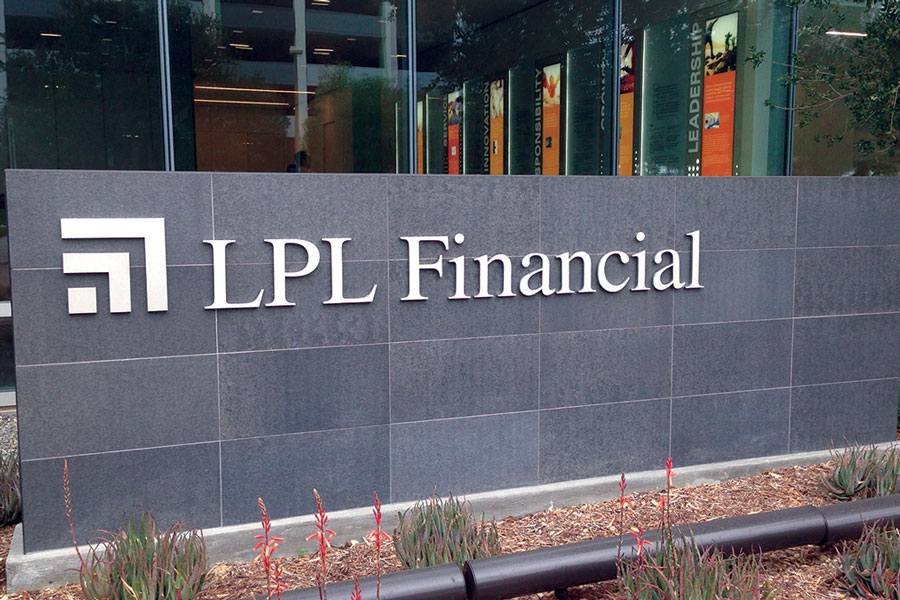

The independent broker-dealer business model continues to be stood on its head, with giant financial services companies, think LPL Financial and Cetera Financial Group, starting 2023 with more moves toward controlling and owning the assets of financial advisors, rather than servicing them for a modest fee as they've done for decades.
This never would have happened 20 years ago. In 2003, broker-dealers getting in between a financial advisor and a client at an IBD was unthinkable, anathema, out of bounds. The mantra for LPL and all other independent broker-dealers was: Hands off the client!
That's changing. Now, in 2023, there are lots of hands reaching for the client, with all eyes on profitability. (They're called IBDs because financial advisors are compensated as independent contractors, by the way, a status that comes with all kinds of tax advantages that the industry fights hard each year to keep.)
Changes in the industry have been widely expected. It makes sense to lock up a firm's most profitable financial advisors.
And there's little doubt that LPL and Cetera are feeling the heat from the wave of buyers of registered investment advisors, known as aggregators, that are backed by Wall Street and by private equity managers snapping up RIAs at a furious rate. RIAs can generate returns annually of 25% to 35% while independent broker-dealers routinely post profit margins in the single digits.
Last fall, LPL said it was buying one of its giant branch offices that works with $40 billion in client assets. That news came just weeks after Cetera said it had made a minority investment in a firm with $2.5 billion in client assets that had been affiliated with Cetera and predecessor firms for more than two decades.
Thursday morning saw more of the same from the two IBD behemoths.
LPL said it was launching a new program in which it will buy, and its financial advisors will sell, portions of their client lists, known as books of business in the industry. The program is dubbed Partial Book Sales internally at the firm.
"Advisors are guided through identifying and submitting accounts for transfer, and receive upfront payout on approval," according to a statement from LPL. "Once transferred, LPL’s Investor Focused Solutions team of licensed advisors immediately contacts the clients and assumes responsibility for the ongoing relationship."
"We’ve heard from advisors that they want to create capacity in their practice and have full confidence that those clients will be served with intention," an LPL spokesperson said. "The transition experience includes a warm handoff from the LPL advisor to our LPL team."
Not to be outdone, Cetera said Thursday morning that it was taking a minority stake in another firm affiliated with it, Prosperity Advisors, a firm in the Kansas City area with $1.7 billion in client assets. Terms of that deal were not disclosed.
"The investment is the latest in Cetera’s partner practice program, which provides select advisors the option to have Cetera invest in a minority stake in their firm and utilize agile, proprietary growth solutions and technology to grow their business," the company said in a press release.
I'm not saying LPL or Cetera or any other independent broker-dealer that works with financial advisors is attempting to steal clients from financial advisors. More likely, these big firms are assessing the stability of long-term revenue streams from advisors, watching RIA aggregators throw lots of cold hard cash around, and pivoting to a new business model.
They're also doing their best not to reveal the full breadth of this strategy to most of their advisors, many of whom have identified as "independent" financial advisors as a point of pride for decades.
But it's the death of IBDs keeping their hands off clients.

Looking to refine your strategy for investing in stocks in the US market? Discover expert insights, key trends, and risk management techniques to maximize your returns

Driven by robust transaction activity amid market turbulence and increased focus on billion-dollar plus targets, Echelon Partners expects another all-time high in 2025.

The looming threat of federal funding cuts to state and local governments has lawmakers weighing a levy that was phased out in 1981.

The fintech firms' new tools and integrations address pain points in overseeing investment lineups, account monitoring, and more.
RIAs face rising regulatory pressure in 2025. Forward-looking firms are responding with embedded technology, not more paperwork.
As inheritances are set to reshape client portfolios and next-gen heirs demand digital-first experiences, firms are retooling their wealth tech stacks and succession models in real time.
